By filling in this form and selecting the ‘I confirm’ button below, the undersigned hereby confirms represents and warrants that:
- It has the knowledge and experience in financial and business matters required to receive and use services to be made available by THE ELEPHANT as described in its website, as amended from time to time, and as such it is capable of evaluating the merits and risks involved with them.
- The purpose of this declaration is to enable THE ELEPHANT and its affiliates to discharge its responsibilities under such exemptions and that THE ELEPHANT will rely upon the information contained herein, and therefore, the representations herein are complete, accurate and binding, and may be relied upon by THE ELEPHANT and its affiliates.
- Although THE ELEPHANT will use their best efforts to keep this declaration strictly confidential, they may present this declaration and any other information which the undersigned has provided to them to such parties as they deem advisable if called upon to establish the availability under the Securities Laws of an exemption from registration of the offer and sale of securities or any other service to be made available by THE ELEPHANT, as amended from time to time, or if the contents thereof are relevant to any issue in any action, suit or proceeding to which THE ELEPHANT or its affiliates is a party or by which they or it are or may be bound.
- Any offer or services that may be made available to the undersigned by THE ELEPHANT or its affiliates (i) will not constitute a violation of any laws or regulations, including the Securities Laws and investment advice laws, of any applicable jurisdiction; (ii) will be permissible under all applicable Securities Laws and shall not trigger any licensing, registration, or other requirements.
- It shall not transmit or otherwise send any information to which THE ELEPHANT will give it access to, to any person in any jurisdiction in which the distribution of such information and/or the offering or services are not authorized, or to whom such offer or invitation may be unlawful.
PLEASE NOTE EXTERNAL CONFIRMATION AND/OR EVIDENCE MAY BE REQUIRED BEFORE THE ACCREDITAION PROCESS IS COMPLETED
By filling in this form and selecting the ‘I confirm’ button below, the undersigned hereby confirms and represents that it is a “sophisticated investor” or a “professional investor” and a “wholesale client” (and not a “retail client”) as defined under the Corporations Act (Cth) 2001
PLEASE NOTE EXTERNAL CONFIRMATION AND/OR EVIDENCE MAY BE REQUIRED BEFORE THE ACCREDITAION PROCESS IS COMPLETED
By filling in this form and selecting the ‘I confirm’ button below, the undersigned hereby confirms and represents that:
In respect of the transaction made in connection with these offering and services, it has not obtained any access to the relevant transaction information in a press release, conference, advertisement, announcement, professional or trade publication or marketing materials within the People’s Republic of China.
PLEASE NOTE EXTERNAL CONFIRMATION AND/OR EVIDENCE MAY BE REQUIRED BEFORE THE ACCREDITAION PROCESS IS COMPLETED
By filling in this form and selecting the ‘I confirm’ button below, the undersigned hereby confirms and represents that it has made appropriate enquiries and has full knowledge of the nature, rights and obligations arising out of the offering or the services made available by The Elephant, as described in its website, as changed from time to time, and obligations applicable to it under the laws of the Arab Republic of Egypt, and will not make any offerings, disposals, investments or otherwise transact with regard to offering or the services made available by The Elephant in case such offering, disposal, investment or other transaction is in contravention to the laws, regulations, governmental circulars and decrees of the Arab Republic of Egypt.
PLEASE NOTE EXTERNAL CONFIRMATION AND/OR EVIDENCE MAY BE REQUIRED BEFORE THE ACCREDITAION PROCESS IS COMPLETED
By filling in this form and selecting the ‘I confirm’ button below, the undersigned hereby confirms and represents that it is located or resident in the European Economic Area (the “EEA”), it is a “qualified investor” within the meaning of the law in any member state of the EEA which has implemented the Directive 2003/71/EC, and amendments thereto, including Directive 2010/73/EC (the “Prospectus Directive”), implementing Article 2(1)(e)(i), (ii) or (iii) of the Prospectus Directive.
PLEASE NOTE EXTERNAL CONFIRMATION AND/OR EVIDENCE MAY BE REQUIRED BEFORE THE ACCREDITAION PROCESS IS COMPLETED
By filling in this form and selecting the ‘I confirm’ button below, the undersigned hereby confirms and represents that it is a “qualified investor” within the meaning of Directive 2003/71/EC, as amended, and it professionally or commercially purchases or sells securities or investment products (Vermögensanlagen) within the meaning of the German Investment Product Act (Vermögensanlagengesetz) for its own account or for the account of others.
PLEASE NOTE EXTERNAL CONFIRMATION AND/OR EVIDENCE MAY BE REQUIRED BEFORE THE ACCREDITAION PROCESS IS COMPLETED
By filling in this form and selecting the ‘I confirm’ button below, the undersigned hereby confirms and represents that it is a “qualified investor” as such term is defined in the Prospectuses Act 2005 of Gibraltar (as amended) and in Directive 2003/71/EC. It is a “professional client” as such term is defined in the Financial Services (Markets in Financial Instruments) Act 2006 of Gibraltar; and that it has not requested “non-professional treatment” within the meaning of Schedule 2 of the Financial Services (Markets in Financial Instruments) Act 2006 of Gibraltar.
PLEASE NOTE EXTERNAL CONFIRMATION AND/OR EVIDENCE MAY BE REQUIRED BEFORE THE ACCREDITAION PROCESS IS COMPLETED
By filling in this form and selecting the ‘I confirm’ button below, the undersigned hereby confirms and represents that it is a professional investor (as such term is defined in Part 1 of Schedule 1 to the Securities and Futures Ordinance (Cap. 571 of the Laws of Hong Kong and Cap. 571D Securities and Futures (Professional Investor) Rules).
Individuals
(1) An individual specified for the purposes of section 3(b) is an individual having a portfolio of not less than $8 million at the relevant date or as ascertained in accordance with section 8, when any one or more of the following are taken into account— (a) a portfolio on the individual’s own account; (b)a portfolio on a joint account with the individual’s associate; (c)the individual’s share of a portfolio on a joint account with one or more persons other than the individual’s associate; (d)a portfolio of a corporation which, at the relevant date, has as its principal business the holding of investments and is wholly owned by the individual.
(2) For the purposes of subsection (1)(c), an individual’s share of a portfolio on a joint account with one or more persons other than the individual’s associate is— (a)the individual’s share of the portfolio as specified in a written agreement among the account holders; or (b)in the absence of an agreement referred to in paragraph (a), an equal share of the portfolio.
PLEASE NOTE EXTERNAL CONFIRMATION AND/OR EVIDENCE WILL BE REQUIRED BEFORE THE ACCREDITAION PROCESS IS COMPLETED
By filling in this form and selecting the ‘I confirm’ button below, the undersigned hereby confirms, represents, and give his written consent that he is:
- An Investor to which at least one of the categories set forth in the First Schedule to the Israeli Securities Law, 1968 (the “Securities Law”) and as listed below apply (a “Sophisticated Investor”); and
- Aware of the meaning of the fact that he is an investor included in this Schedule and consents thereto.
The categories are:
- A Joint Investment Trust Fund, within its meaning in the Joint Investments Trust Law, 5754-1994, or a company for management of said fund;
- A Provident Fund or a Management Company as defined in the Control of Financial Services Law (Provident Funds), 5765-2005;
- An Insurer, within its meaning in the Supervision of Insurance Law 5741- 1981;
- A Banking Corporation or an Auxiliary Body Corporation, within their meaning in the Banking (Licensing) Law 5741-1981, exclusive of a joint services company, which acquire for themselves or for customers who are investors enumerated in section 15A(b) to the Securities Law;
- A Portfolio Manager, within its meaning in Section 8(b) of the Regulation of Investment Counseling and Portfolio Management Law 5755-1995, who are acquires for himself or for customers who are investors enumerated in section 15A(b) to the Securities Law;
- An Investment Counselor or an Investment Marketer, within their meaning in section 7(c) of the Regulation of Investment Counseling and Portfolio Management Law 5755-1995, who acquires for himself;
- A Stock Exchange member who acquires for himself or for customers who are investors enumerated in section 15A(b) to the Securities Law;
- An Underwriter who meets the qualifications under section 56(c) who buys for himself;
- A Risk Capital Fund; for this purpose, a “Risk Capital Fund” – a body corporate, the main activity of which is investment in bodies corporate whose main activity – at the time of the investment – is research and development or the production of innovative and knowhow intensive products or processes, investment in which involves greater risk than is common with other investments;
- A body corporate wholly owned by investors enumerated in section 15A(b);
- A body corporate, other than a body corporate formed for the acquisition of securities from a certain offer – with an equity capital in excess of NS 50 million;
- An individual, for whom one of the following holds true:
- The total value of the liquid assets he owns exceeds 8,364,177 million new shekels.
- His income in each of the last two years exceeds 1,254,627 million new shekels or the income of the family cell to which he belongs exceeds 1,881,940 million new shekels.
- The total value of the liquid assets he owns exceeds 5,227,610 million new shekels and his income in each of the last two years exceeds 627,313 new shekels or the income of the family cell to which he belongs exceeds 940,969 new shekels;
For the purposes of this item − “liquid assets” – cash, deposits, financial assets as defined in the Consulting and Securities Listed on the Stock Exchange Law;
“Family cell” – an individual and his family living with him or if the livelihood of one depends on the other;
PLEASE NOTE EXTERNAL CONFIRMATION AND/OR EVIDENCE MAY BE REQUIRED BEFORE THE ACCREDITAION PROCESS IS COMPLETED
By filling in this form and selecting the ‘I confirm’ button below, the undersigned hereby confirms and represents that it is a “wholesale investor” as that term is defined in clauses 3(2)(a), (c) or (d) of Schedule 1 to the Financial Markets Conduct Act 2013 of New Zealand (“FMC Act”),
A person is a wholesale investor if;
- the person is an investment business (seeclause 37); or
- the person meets the investment activity criteria specified in clause 38; or
- the person is large (seeclause 39); or
- the person is a government agency (seeclause 40).
In each case as defined in Schedule 1 to the FMC Act, the undersigned understands the consequences of certifying itself to be a wholesale investor.
PLEASE NOTE EXTERNAL CONFIRMATION AND/OR EVIDENCE MAY BE REQUIRED BEFORE THE ACCREDITAION PROCESS IS COMPLETED
By filling in this form and selecting the ‘I confirm’ button below, the undersigned hereby confirms and represents that it is an “institutional investor” as defined under the Decree-Law 1 of 1999 and Accord 1 of 2001, both as amended, in relation to whom the registration of the securities to be offered and sold is not required. Pursuant to the foregoing, the undersigned (i) is a legal entity, validly formed and in existence, (ii) has participated, on a regular basis, in at least the previous two years, in the administration of investments substantially similar to those described in The Elephant’s website, (iii) has a net worth of at least one million dollars, (iv) has key executives or, a majority of its directors and officers, that have at least two years of experience in the regular administration of investments and (v) does not require the protection of the provisions set forth in the securities laws of the Republic of Panama.
The undersigned acknowledges that the securities have not been registered under the Panamanian securities laws and regulations and may not be offered or sold within Panama except pursuant to an exemption from, or in transactions not subject to, the registration requirements of the Panamanian securities laws and regulations.
PLEASE NOTE EXTERNAL CONFIRMATION AND/OR EVIDENCE MAY BE REQUIRED BEFORE THE ACCREDITAION PROCESS IS COMPLETED
By filling in this form and selecting the ‘I confirm’ button below, the undersigned hereby confirms and represents that it is a “qualified investor” within the meaning of the Federal Law of the Russian Federation “On Securities Market” No. 39-FZ dated April 22, 1996, as amended, (ii) the execution and performance of the offering and services to be made available by The Elephant, as described in its website and associated commercial terms, as changed from time to time, do not violate applicable laws of the Russian Federation and (iii) in making any payments in connection with offering and services, it has complied or will comply with the requirements of all applicable laws of the Russian Federation, including with respect to foreign currency transactions. The undersigned acknowledges that the The Elephant is relying in part upon the truth and accuracy of, and the undersigned’s compliance with, the representations, warranties, agreements, acknowledgements and understandings of the undersigned set forth herein in order to determine its eligibility to gain access to The Elephant’s services, as changed from time to time and the undersigned is aware of the legal consequences of the foregoing.
PLEASE NOTE EXTERNAL CONFIRMATION AND/OR EVIDENCE WILL BE REQUIRED BEFORE THE ACCREDITAION PROCESS IS COMPLETED
By filling in this form and selecting the ‘I confirm’ button below, the undersigned hereby confirms and represents that it is either an “institutional investor” as defined under Section 4A(1) of the Securities and Futures Act, Chapter 289 of Singapore (“SFA”) or a “relevant person” as defined under Section 275(2) of the SFA (including an “accredited investor” as defined under Section 4A(1) of the SFA).
PLEASE NOTE EXTERNAL CONFIRMATION AND/OR EVIDENCE MAY BE REQUIRED BEFORE THE ACCREDITAION PROCESS IS COMPLETED
By filling in this form and selecting the ‘I confirm’ button below, the undersigned hereby confirms and represents that it is an “investment professional” within the meaning of Article 11(1) of the Enforcement Decree of the Financial Investment Services and Capital Markets Act of South Korea.
PLEASE NOTE EXTERNAL CONFIRMATION AND/OR EVIDENCE MAY BE REQUIRED BEFORE THE ACCREDITAION PROCESS IS COMPLETED
By filling in this form and selecting the ‘I confirm’ button below, the undersigned hereby confirms and represents that it is a “qualified investor” within the meaning of the Swiss Collective Investment Schemes Act of June 23, 2006, as amended, its implementing ordinance and regulatory guidance.
PLEASE NOTE EXTERNAL CONFIRMATION AND/OR EVIDENCE MAY BE REQUIRED BEFORE THE ACCREDITAION PROCESS IS COMPLETED
By filling in this form and selecting the ‘I confirm’ button below, the undersigned hereby confirms and represents that it is located or resident in the United Kingdom, it is a person of a kind described in Articles 19 and/or 49 of the Financial Services and Markets Act 2000 (Financial Promotion) Order 2005 (the “Order”), or that the offering or the services made available by The Elephant, as described in its website and associated commercial terms, as changed from time to time, may otherwise be lawfully distributed to it pursuant another applicable exemption under the Order.
The undersigned acknowledges that these offering and services are only directed at (i) persons who have professional experience in matters relating to investments who fall within the definition of “investment professionals” in Article 19(5) of the Order, (ii) high net worth entities (including companies and unincorporated associations of high net worth and trusts of high value) or other persons falling within Article 49(2)(a) to (d) of the Order, and (iii) persons to whom such offering and services may otherwise be lawfully distributed.
PLEASE NOTE EXTERNAL CONFIRMATION AND/OR EVIDENCE MAY BE REQUIRED BEFORE THE ACCREDITAION PROCESS IS COMPLETED
By filling in this form and selecting the ‘I confirm’ button below, the undersigned hereby confirms and represents that it is an “accredited investor” (an “Accredited Investor”) as such term is defined in Rule 501(a) of Regulation D under the Securities Act of 1933, as amended, for one or more of the reasons specified below:
- Where the undersigned is a natural person:
- He or she has an individual net worth, or joint net worth with my spouse (determined by (i) subtracting total liabilities from total assets, and (ii) excluding the value of my primary residence), in excess of $1,000,000; and/or
- He or she had an individual income in excess of $200,000 (or a joint income together with my spouse in excess of $300,000) in each of the two most recently completed calendar years, and reasonably expects to have an individual income in excess of $200,000 (or a joint income together with my spouse in excess of $300,000) in the current calendar year.
- Where the undersigned is or acting on behalf of:
- a corporation, partnership, limited liability company or similar business trust or organization described in Section 501(c)(3) of the Internal Revenue Code not formed for the specific purpose of acquiring the securities that has total assets are in excess of $5,000,000;
- a bank as defined in Section 3(a)(2) of the Securities Act, a savings and loan association, or other institution defined in Section 3(a)(5)(A) of the Securities Act acting in either its individual or fiduciary capacity (this includes a trust for which a bank acts as trustee and exercises investment discretion with respect to the trust’s decision to invest in the securities);
- a broker dealer registered pursuant to Section 15 of the Securities Exchange Act of 1934, as amended;
- an insurance company as defined in Section 2(13) of the Securities Act;
- an investment company registered under the Investment Company Act of 1940, as amended (the “Investment Company Act”), or a business development company as defined in Section 2(a)(48) of the Investment Company Act;
- a Small Business Investment Company licensed by the U.S. Small Business Administration under Section 301(c) or (d) of the Small Business Investment Act of 1958, as amended;
- a plan established and maintained by a state, its political subdivisions, or an agency or instrumentality of a state or its political subdivisions, for the benefit of employees, having total assets in excess of $5,000,000;
- an employee benefit plan within the meaning of the Employee Retirement Income Security Act of 1974, as amended (“ERISA”), (a) for which the investment decision to acquire the securities is being made by a plan fiduciary, as defined in Section 3(21) of ERISA, that is either a bank, savings and loan association, insurance company, or registered investment adviser, (b) which has total assets in excess of $5,000,000, or (c) which is self-directed, with the investment decisions made solely by persons who are Accredited Investors;
- a private business development company defined in Section 202(a)(22) of the Investment Advisers Act of 1940, as amended;
- a trust not formed for the specific purpose of acquiring the securities with total assets in excess of $5,000,000 and directed by a person who has such knowledge and experience in financial and business matters as to be capable of evaluating the merits and risks of investing in the securities;
- a revocable trust (including a revocable trust formed for the specific purpose of acquiring the securities) and the grantor or settlor of such trust is an Accredited Investor; and/or
- an entity in which each equity owner is an Accredited Investor.
PLEASE NOTE EXTERNAL CONFIRMATION AND/OR EVIDENCE MAY BE REQUIRED BEFORE THE ACCREDITAION PROCESS IS COMPLETED
By filling in this form and selecting the ‘I confirm’ button below, the undersigned hereby confirms represents and warrants that:
- It has the knowledge and experience in financial and business matters required to receive and use services to be made available by THE ELEPHANT as described in its website, as amended from time to time, and as such it is capable of evaluating the merits and risks involved with them.
- The purpose of this declaration is to enable THE ELEPHANT and its affiliates to discharge its responsibilities under such exemptions and that THE ELEPHANT will rely upon the information contained herein, and therefore, the representations herein are complete, accurate and binding, and may be relied upon by THE ELEPHANT and its affiliates.
- Although THE ELEPHANT will use their best efforts to keep this declaration strictly confidential, they may present this declaration and any other information which the undersigned has provided to them to such parties as they deem advisable if called upon to establish the availability under the Securities Laws of an exemption from registration of the offer and sale of securities or any other service to be made available by THE ELEPHANT, as amended from time to time, or if the contents thereof are relevant to any issue in any action, suit or proceeding to which THE ELEPHANT or its affiliates is a party or by which they or it are or may be bound.
- Any offer or services that may be made available to the undersigned by THE ELEPHANT or its affiliates (i) will not constitute a violation of any laws or regulations, including the Securities Laws and investment advice laws, of any applicable jurisdiction; (ii) will be permissible under all applicable Securities Laws and shall not trigger any licensing, registration, or other requirements.
- It shall not transmit or otherwise send any information to which THE ELEPHANT will give it access to, to any person in any jurisdiction in which the distribution of such information and/or the offering or services are not authorized, or to whom such offer or invitation may be unlawful.
PLEASE NOTE EXTERNAL CONFIRMATION AND/OR EVIDENCE MAY BE REQUIRED BEFORE THE ACCREDITAION PROCESS IS COMPLETED



 ChargeBee
SaaS
Last Val $3.75B
Private Stocks Seller
ChargeBee
SaaS
Last Val $3.75B
Private Stocks Seller
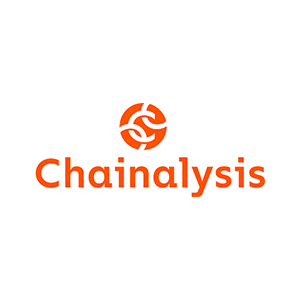 Chainalysis
Cryptocurrency
Last Val $8.60B
Private Stocks Seller
Chainalysis
Cryptocurrency
Last Val $8.60B
Private Stocks Seller
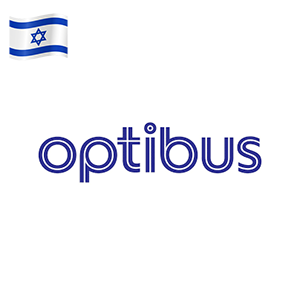 Optibus
Artificial Intelligence
Last Val $1.30B
Private Stocks Seller
Optibus
Artificial Intelligence
Last Val $1.30B
Private Stocks Seller
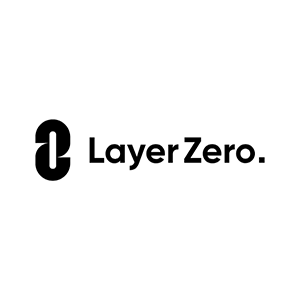 LayerZero
Blockchain
Last Val $3.00B
Private Stocks Seller
LayerZero
Blockchain
Last Val $3.00B
Private Stocks Seller
 Deel
HR Tech
Last Val $12.10B
Private Stocks Seller
Deel
HR Tech
Last Val $12.10B
Private Stocks Seller
 Somatus
HealthTech
Last Val $2.56B
Private Stocks Seller
Somatus
HealthTech
Last Val $2.56B
Private Stocks Seller
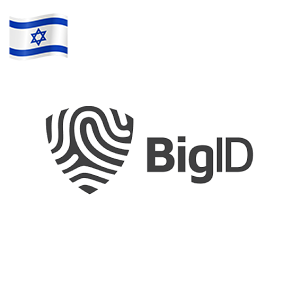 BigID
Cybersecurity
Last Val $980.00M
Private Stocks Seller
BigID
Cybersecurity
Last Val $980.00M
Private Stocks Seller
 OwnBackup
Cybersecurity
Last Val $3.35B
Private Stocks Seller
OwnBackup
Cybersecurity
Last Val $3.35B
Private Stocks Seller
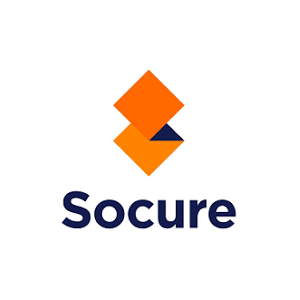 Socure
Cybersecurity
Last Val $4.50B
Private Stocks Seller
Socure
Cybersecurity
Last Val $4.50B
Private Stocks Seller
 PandaDoc
SaaS
Last Val ~$1.06B
Private Stocks Seller
PandaDoc
SaaS
Last Val ~$1.06B
Private Stocks Seller
 Lusha
Marketing Tech
Last Val $1.50B
Private Stocks Seller
Lusha
Marketing Tech
Last Val $1.50B
Private Stocks Seller
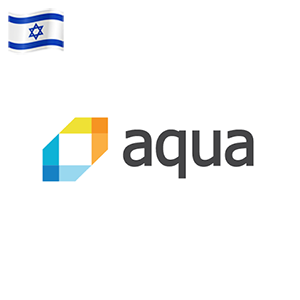 Aqua Security
Cybersecurity
Last Val $1.00B
Private Stocks Seller
Aqua Security
Cybersecurity
Last Val $1.00B
Private Stocks Seller